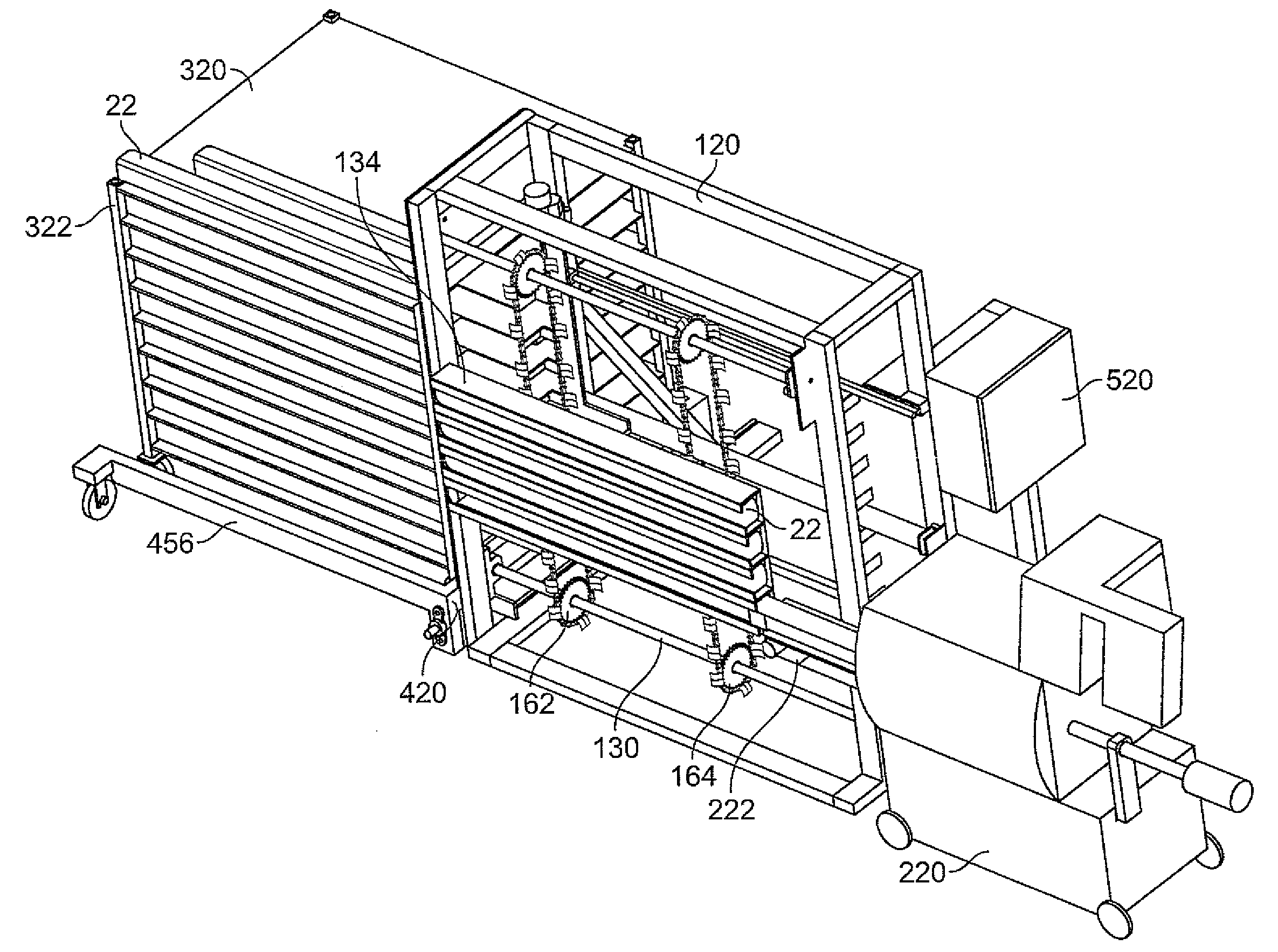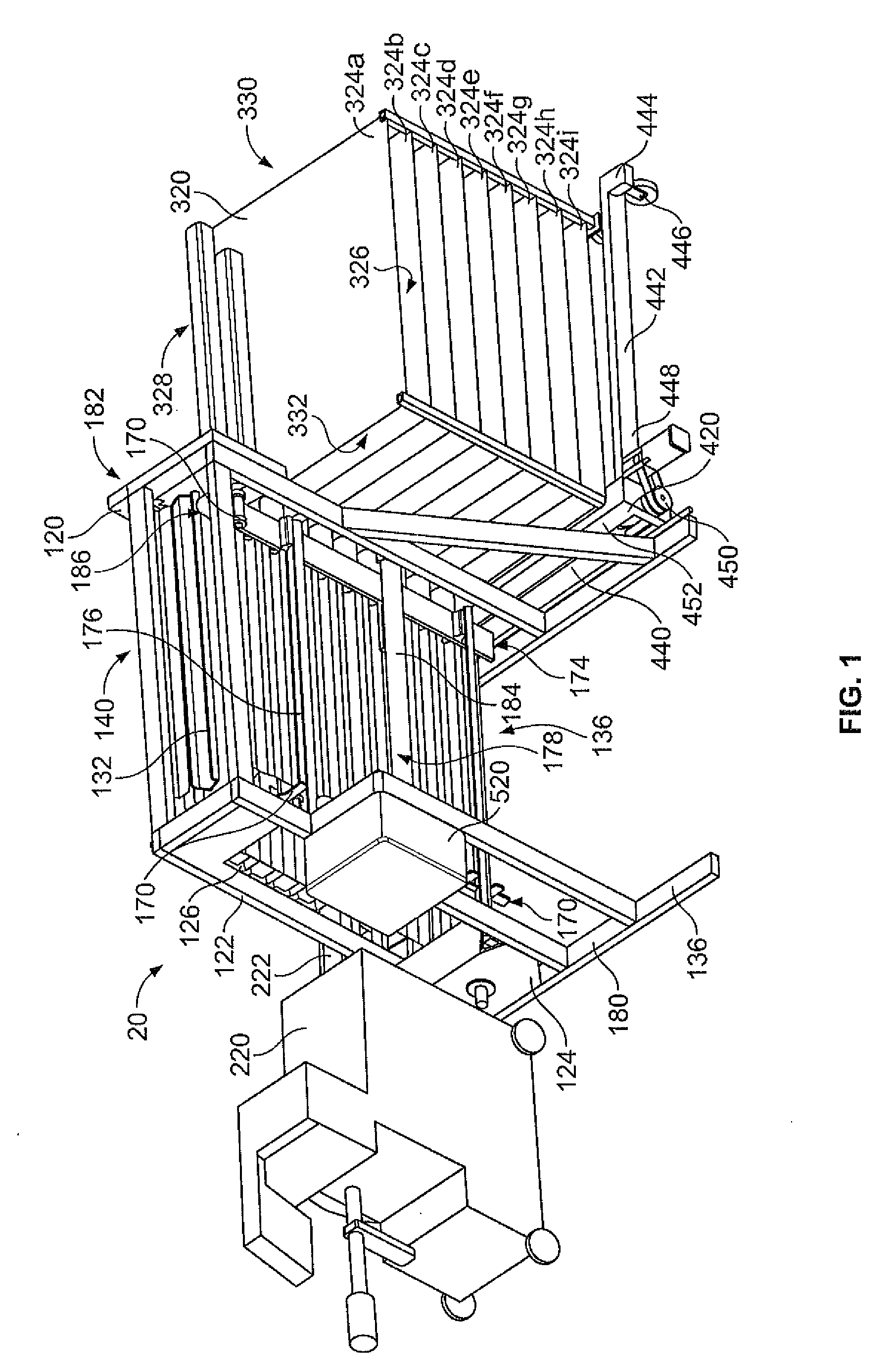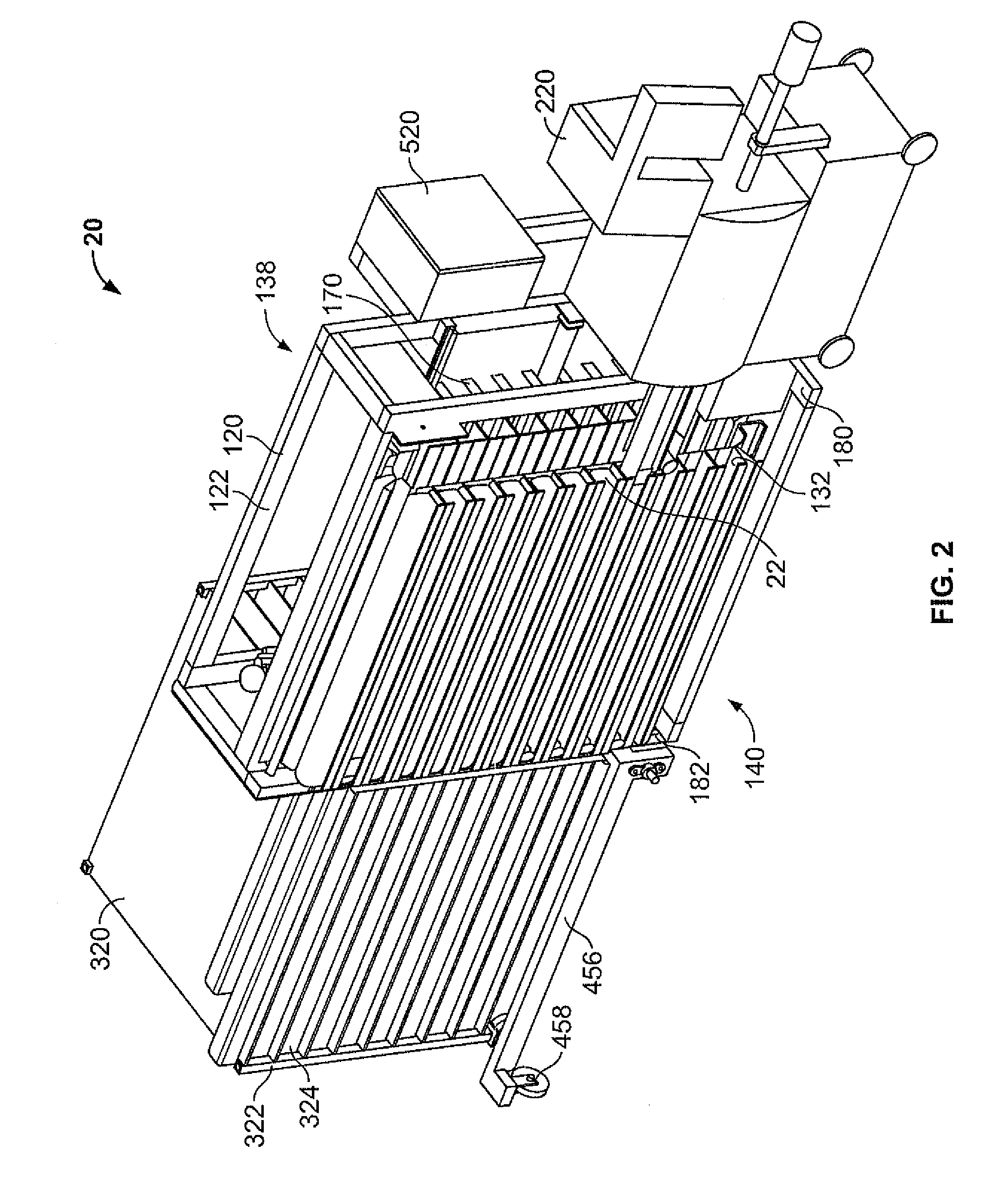Automatic rack loader
a rack loader and automatic technology, applied in the field of rack loaders, can solve the problems of difficult for a worker to keep a sausage completely straight, bending and sagging create unsightly blemishes in the collagen casing, and the method of sausage manufacturing is difficult to achiev
- Summary
- Abstract
- Description
- Claims
- Application Information
AI Technical Summary
Benefits of technology
Problems solved by technology
Method used
Image
Examples
first embodiment
[0037]Rack positioner 420 is configured to move rack 320, placed adjacent the distal portion of frame 180 of automatic rack loader 120, in a direction perpendicular to rack loader 120. In a first embodiment, as illustrated in FIG. 6, rack 320 is placed on carriage 422, which moves on support 424. As illustrated, carriage 422 slides on rails 426, 428, but carriage 422 can move on a belt or chain conveyor, on wheels, or on any other system allowing carriage 422 to move in a direction perpendicular to the direction of movement of conveyor belt 222. Carriage 422 moves preferably by air-actuated cylinders 430, 432, but can also be moved by a belt drive, chain drive, screw drive, linkage to step motor, or other similar device.
second embodiment
[0038]In a second embodiment, rack positioner 420 has a stop rail 440 positioned along the distal portion 182 of frame 122, a positioning rail 442 extending perpendicularly to stop rail 440 at the ride side 452 of stop rail 440, and a holding rail 456 extending perpendicularly from the left side 454 of stop rail 440, as shown in FIGS. 1 through 5. Positioning rail 442 is supported at its distal end 444 by wheel 446 and at its proximal end 448 by attachment to stop rail 440. A servo and screw drive 450, such as a THK ball screw made by Technico Inc., moves positioning rail 442 laterally from the right side 452 of stop rail 440 to the left side 454 of stop rail 440. Alternatively, a VFD gearmotor and Acme drive can be used. When a rack 320 is placed against stop rail 422 and positioning rail 442 is oriented alongside rack 320, movement of positioning rail from the right side 1452 toward the left side 454 will move rack 320 in the same direction. Holding rail 456, which is attached to ...
PUM
 Login to View More
Login to View More Abstract
Description
Claims
Application Information
 Login to View More
Login to View More - R&D
- Intellectual Property
- Life Sciences
- Materials
- Tech Scout
- Unparalleled Data Quality
- Higher Quality Content
- 60% Fewer Hallucinations
Browse by: Latest US Patents, China's latest patents, Technical Efficacy Thesaurus, Application Domain, Technology Topic, Popular Technical Reports.
© 2025 PatSnap. All rights reserved.Legal|Privacy policy|Modern Slavery Act Transparency Statement|Sitemap|About US| Contact US: help@patsnap.com



